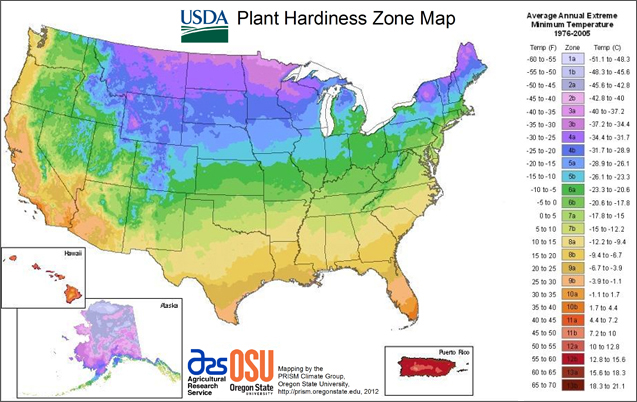The Climate Change

My 95 year-old neighbor, Alabama, told me it was going to be a hard and cold winter. I always listen to Bama, because she ‘reads’ things well. I decided against fall planting of shrubs around a river home, because I was afraid the unattended new plantings would not survive this winter.
Plant Hardiness Zones are determined by the USDA Agricultural Research Service and with the previous warming trends, planting zones were moved North. Greene County is now listed as 6b with a low range of -6F to -0F. This was heaven to my ears, because there are new Gardenia cultivars out that are hardy to our zone. However, this weather has been brutal and we’ll see if they have survived. I plan to be more cautious in expecting warmer temperatures and will choose plants for cooler zones.
Although only the lower limits are given by the USDA, upper limits are also important to plant hardiness and humidity is a factor. Usually, plants from higher elevations require cooler temperatures and lower humidity. They often succumb to our humid and hot summers. At best, they become vulnerable to disease and biotic stress. If you purchase from small local nurseries, plants are safe for our zones. However, sometimes, larger companies will put a tender perennial in with the locally hardy perennials, so, if I am not familiar with the species, I always read the tags and warn other shoppers.
Want to know your zone? At http://planthardiness.ars.usda.gov/PHZMWeb/ you can plug in your zip code and find out what your zone is.
Another stressor for plants comes from the weather modification programs that are using aerosol spraying. The United States Government is attempting to improve the weather, and use it for defense. Project Cloverleaf is a joint US and Canada military operation which involves the distribution of chemicals, including aluminum (reflective), barium (heating and radio transmission capacity) and strontium into the atmosphere (along with other matter). The High Active Auroral Research Project (HAARP) is part of this and The Defense Advanced Research Management Project, (DARPA) leads the weather control modification. For further information, google DARPA and weather modification.
Unfortunately, this has affected plants, especially in the Northwest where considerable spraying has affected crop production. For more information on what chemicals could be affecting plant health, watch What In The World Are They Spraying http://topdocumentaryfilms.com/what-in-the-world-are-they-spraying/ and/or Why In The World Are They Spraying https://www.youtube.com/watch?v=j0fBcH0iuX0.
As for us gardeners, new evidence suggests lower sunspot activity and cooling …not global warming. http://www.dailymail.co.uk/news/article-2415191/And-global-COOLING-Return-Arctic-ice-cap-grows-29-year.html. So, maybe we need to be looking at the Siberian cultivars instead of those from warmer climates.
Patricia Tursi, Emeritus
